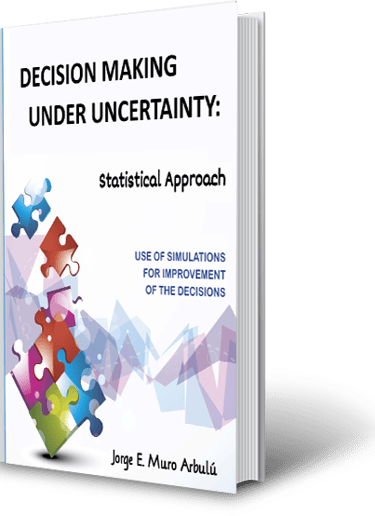Decision Making Under Uncertainty


Routine decisions that do not involve perceived risk are made without much thought. On the other hand, decisions that involve conflict or may affect our future are weighed against our intuition, which is often mistaken.
If we think that we are guided by our reasoning, as a rule, our knowledge is imperfect, limited, and generally based
Content by Chapters
Chapter 1 -> Introduction to decision analysis
Chapter 2 -> Elements of a decision
Chapter 3 -> Analytica: Concepts and management
Chapter 4 -> Binomial, discrete and model distributions
Chapter 5 -> Expected value and average
Chapter 6 -> Theoretical probality distributions
Chapter 7 -> Central limit theorem (CLT)
Chapter 8 -> Monte carlo method (Paradoxes)
Chapter 9 -> Risk profiles and decisions
Chapter 10 -> Projects
Chapter 11 -> Regressions
Chapter 12 -> About crises